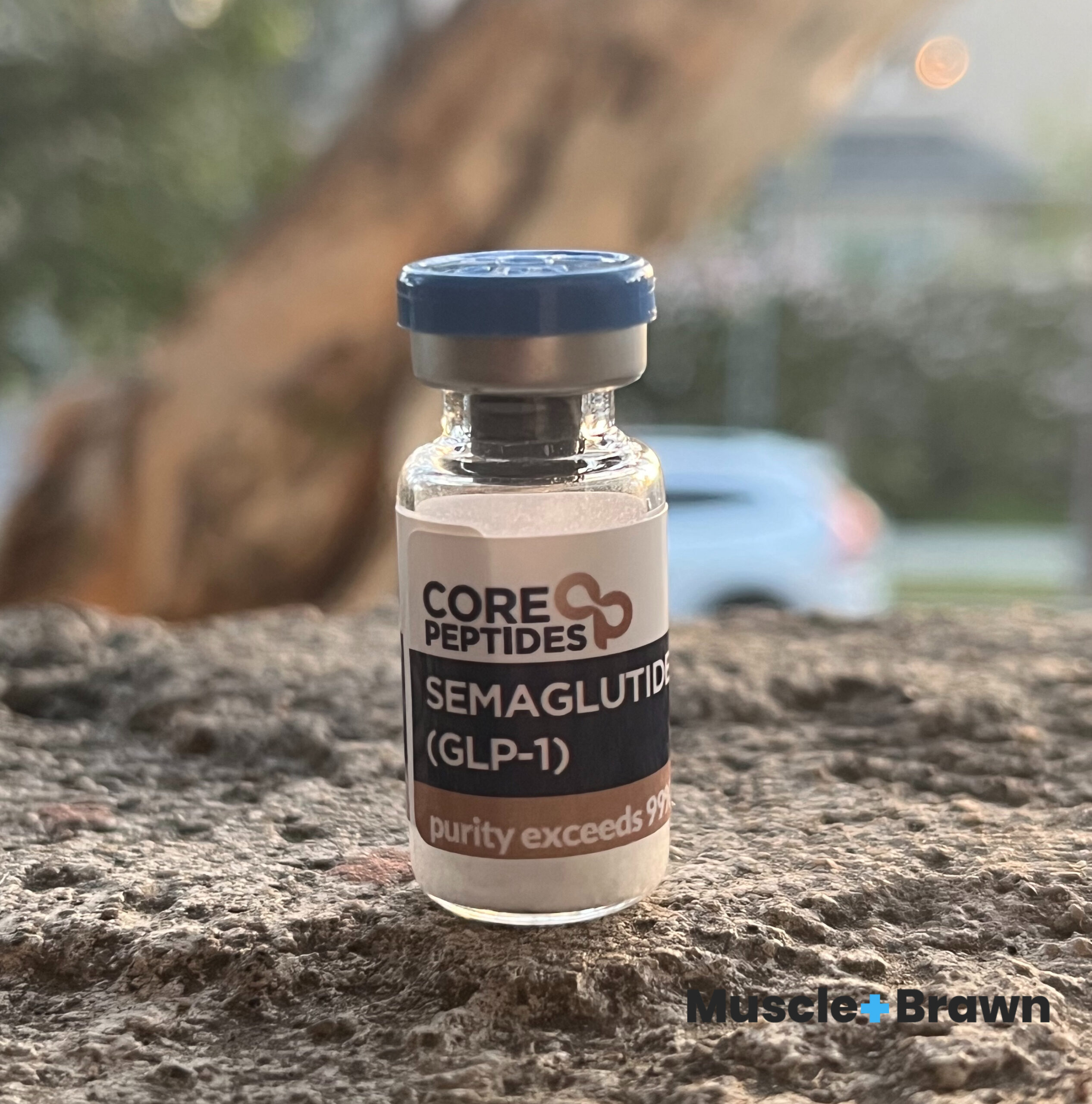Best Peptide To Take With Trt

The quest to optimize health and performance has led many men on Testosterone Replacement Therapy (TRT) to explore adjunctive treatments. Among these, peptides have emerged as a popular, yet often misunderstood, option. But navigating the world of peptides while on TRT can be complex, raising questions about safety, efficacy, and appropriate usage.
This article delves into the intersection of TRT and peptide therapy, examining the potential benefits and risks of combining these treatments. It aims to provide a balanced overview, drawing on available research and expert opinions to offer a clearer understanding of which peptides, if any, may be suitable for individuals undergoing TRT. Crucially, it emphasizes the importance of consulting with qualified healthcare professionals before starting any new treatment regimen.
Understanding the Landscape: TRT and Peptides
Testosterone Replacement Therapy (TRT) is a medical treatment used to address hypogonadism, a condition characterized by insufficient testosterone production. It aims to restore testosterone levels to a normal range, alleviating symptoms like fatigue, low libido, and decreased muscle mass.
Peptides, on the other hand, are short chains of amino acids that can act as signaling molecules in the body. They interact with various receptors, influencing a wide range of physiological processes, from muscle growth and fat loss to tissue repair and immune function.
Popular Peptides and Their Potential Synergies with TRT
Several peptides are often discussed in the context of TRT, each with purported benefits. These benefits, however, are frequently based on anecdotal evidence or limited research, and the interaction with TRT is often poorly understood. Let’s look at a few examples.
GH-Secretagogues (Growth Hormone Releasing Hormones/Peptides - GHRH/GHRPs): This category includes peptides like Sermorelin, Ipamorelin, and CJC-1295. They stimulate the release of growth hormone from the pituitary gland. Some individuals on TRT may use these peptides to further enhance muscle growth, fat loss, and recovery.
However, the effects of GH-secretagogues can vary significantly, and long-term safety data is still limited. Moreover, the combination with TRT could potentially disrupt the delicate hormonal balance, leading to unintended consequences. It is vital to monitor side effects diligently.
BPC-157: Known for its alleged healing properties, BPC-157 is often used to accelerate recovery from injuries and promote gut health. While promising in some preclinical studies, robust clinical trials in humans are still lacking.
There is currently limited data on the specific interactions between BPC-157 and TRT. Individuals considering this peptide should proceed with caution, especially if they have pre-existing medical conditions.
AOD-9604: This peptide is purported to promote fat loss without affecting blood sugar levels or muscle growth. Its mechanism of action involves stimulating lipolysis (the breakdown of fats) and inhibiting lipogenesis (the formation of fats).
However, the scientific evidence supporting AOD-9604's efficacy is weak, and many experts remain skeptical. Combining it with TRT might offer marginal benefits, but potential side effects and long-term consequences remain largely unknown.
Navigating the Risks and Benefits: A Critical Approach
The appeal of combining TRT with peptides often stems from the desire to maximize results, whether it's building muscle, losing fat, or improving overall well-being. However, it's crucial to approach this combination with a critical and informed mindset.
One of the primary concerns is the lack of comprehensive research on the long-term effects of combining TRT with various peptides. Many studies are small, short-term, or conducted on animals, making it difficult to extrapolate the results to human populations.
Furthermore, the unregulated nature of the peptide market poses a significant risk. The purity and quality of peptides can vary widely, increasing the risk of contamination and adverse reactions.
"The use of peptides in conjunction with TRT is a complex area with limited research. Patients should be fully informed of the potential risks and benefits before considering such a combination," warns Dr. [Name Redacted], an endocrinologist specializing in hormone replacement therapy.
Another important consideration is the potential for hormonal imbalances. TRT itself can affect various hormonal pathways, and adding peptides to the mix could further disrupt these systems. This can lead to unpredictable side effects, such as mood swings, acne, and changes in libido.
It's also crucial to acknowledge that the benefits of peptides are often overhyped. While some peptides may offer modest improvements in certain areas, they are not miracle cures. Individuals should have realistic expectations and avoid falling prey to exaggerated claims.
The Importance of Professional Guidance
Deciding whether to combine TRT with peptides is a decision that should only be made in consultation with a qualified healthcare professional. This includes a physician with expertise in hormone replacement therapy and a thorough understanding of peptide pharmacology.
Before considering any peptide therapy, individuals should undergo a comprehensive medical evaluation, including blood tests to assess hormone levels and overall health. This will help identify any underlying medical conditions or potential contraindications.
If a healthcare provider determines that peptide therapy may be appropriate, they should closely monitor the individual's response, adjusting the dosage and frequency as needed. It's crucial to report any side effects or concerns to the healthcare provider promptly.
Looking Ahead: Future Research and Clinical Trials
The future of peptide therapy in conjunction with TRT hinges on further research and clinical trials. Larger, well-designed studies are needed to evaluate the long-term safety and efficacy of various peptide combinations.
These studies should also explore the optimal dosages and administration protocols for different peptides, as well as identify the individuals who are most likely to benefit from this approach. Furthermore, research is needed to understand the potential interactions between peptides and other medications.
As more research becomes available, healthcare professionals will be better equipped to provide evidence-based recommendations and guide patients in making informed decisions about peptide therapy.
Conclusion
The combination of TRT and peptide therapy remains a complex and controversial topic. While some peptides may offer potential benefits for individuals on TRT, the lack of robust scientific evidence and the unregulated nature of the peptide market raise significant concerns. Individuals considering this approach should proceed with caution, consulting with qualified healthcare professionals and carefully weighing the potential risks and benefits.
Ultimately, the goal should be to optimize health and well-being through evidence-based strategies and a personalized approach to treatment. Relying on anecdotal evidence and unsubstantiated claims can lead to disappointment and potentially harmful consequences.


















